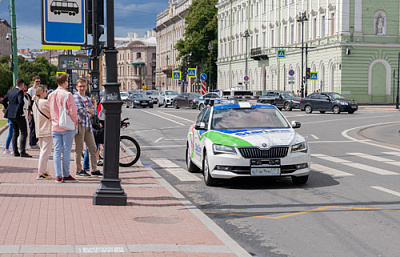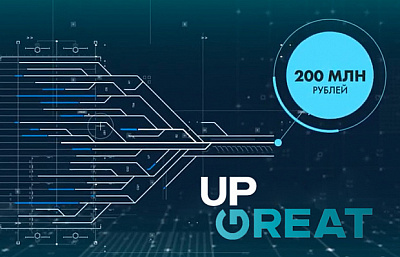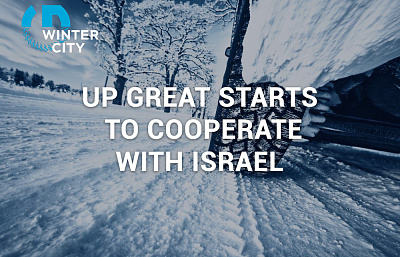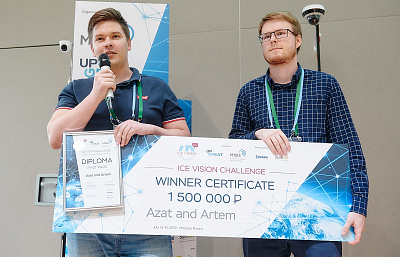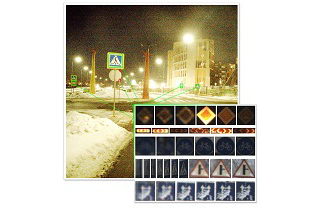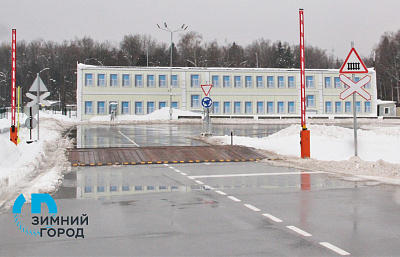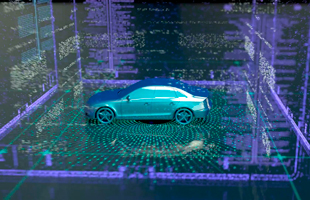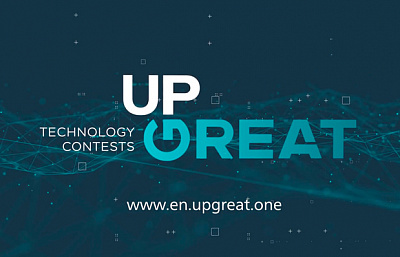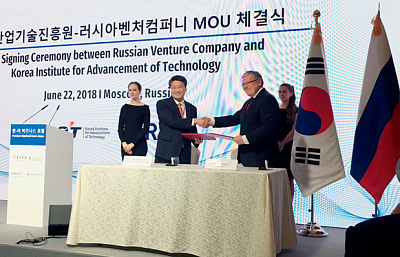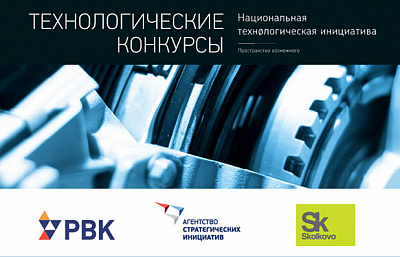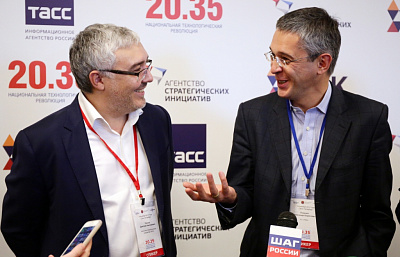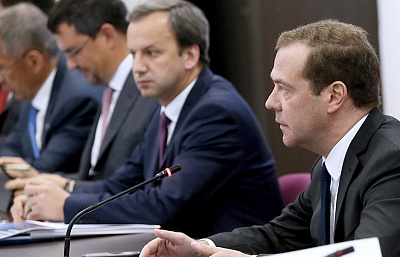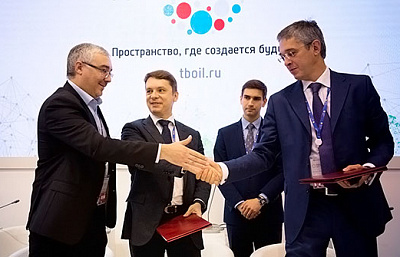The Skolkovo Foundation, ASI and RVC announced the launch of the NTI competitions
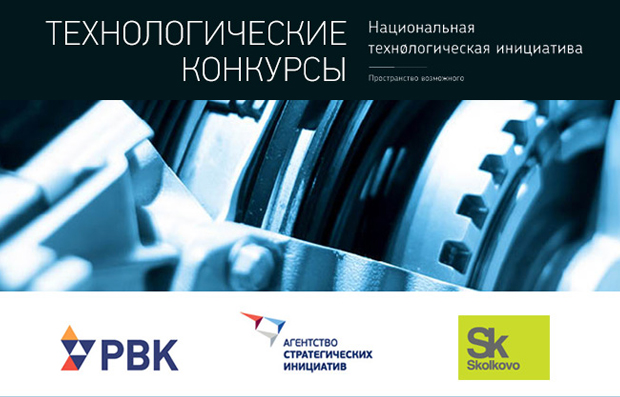
The Skolkovo Foundation, the Agency for Strategic Initiatives and the Russian Venture Company announced the launch of two pilot technology competitions under the National Technology Initiative. "Prize competitions (“challenge” competitions) under the auspices of the National Technology Initiative are a new tool for supporting the innovations in Russia. It will allow forming a new active community of enthusiasts - scientists and engineers - which will become the generator of not only new startups, but will also ensure Russia's competitiveness at high-tech markets," Igor Drozdov, Board Chairman of the Skolkovo Foundation, states.
Technology competitions are a new format of competitions, in which the victory is awarded for an understandable and repeatable solution of the competition problem demonstrated to the jury and the general public. The prize fund will range from 150 million to 200 million roubles for each competition. The first competition is devoted to designing a driverless car for extreme weather conditions; the other one, to designing hydrogen fuel cells for small vehicles. Both competitions will start early next year, and the final tests are scheduled for the autumn of 2018.
The purpose of the first competition is to teach driverless vehicles to drive safely under extreme weather conditions, for example, in winter. The developers are faced with the task of developing the software, designing high-performance sensors, on-board computer systems and control mechanisms. The contestants will have to design a driverless vehicle capable of driving 50 kilometers in three hours on winter roads of the cities. The first rides will take place in March 2018, and the final of the competition will be held in November 2018.
The second technology competition is aimed at designing hydrogen fuel cells for transport vehicles, which are comparable in efficiency to the traditional internal combustion engines and batteries. The competitions will be held in two nominations: power plants for small driverless vehicles as well as for cars, boats and light aircraft.
Until 2020, the Skolkovo, ASI and RVC plan to hold up to 6 technological competitions in various fields.
Dmitry Peskov, Director of the "Young Professionals" at the Strategic Initiatives Agency, spoke about the directions from which the project starts: "The first direction is related to what Tesla cannot do. This car can drive through an American city, but is not able to navigate in a Russian city in winter: we need to take into account the data from the road signs, and we have problems with this. The second direction is also connected with unmanned aerial vehicles. The key technological barrier is operational independence; therefore, the participants will work on self-generated power supply". The first two contests will be the "Winter City" and "Hydrogen Energy on Fuel Cells."
"In addition to the traditional forms of support such as financing and grants, we decided together with other development institutions to make a project that would allow not buying ready-made solutions, not financing the research developments with a fixed budget and terms of reference, but to set to the people an unresolved and impossible task," Alexander Povalko, RVC CEO, said about launching the competition.
Albert Efimov, Adviser to the Board Chairman of the Skolkovo Foundation, in his interview to Sk.ru, announcing the launch of the technology competitions, said:: “In the XXI century, the stimulating competitions with the prize for "overcoming" are becoming an increasingly popular means of developing the innovative activity - the vast majority of the world's best known technology competitions of recent years followed precisely this scheme. This is, for instance, theAnsari X Prize, competition, at which $ 10 million were promised to the first non-governmental organization that made two manned suborbital space flights on a single reusable spacecraft within two weeks. The victory in the end went to the "Tier One" team, which developed the aerospace system SpaceShipOne. The technology of the space flights was invented much earlier. But only this competition in practice has proved that a private company without state support is capable to do what so far was only possible for large governmental organizations and corporations of the military industrial complex. This competition was the beginning of private space exploration.”
Another well-known competition - DARPA Grand Challenge, aimed at designing a vehicle that allows driving 211 km across the Mojave Desert in the USA in a completely autonomous mode. "Thus, the DARPA Agency (a division of the Pentagon engaged in advanced military research) intended to obtain an autonomous medical transporter that would evacuate wounded fighters from the battlefield," Albert Efimov explains. “In 2007,several teams successfully coped with the set task. And though the DARPA did not reach its goal and the tow truck was not designed, the Agency resolved a much more significant task - it set up a whole branch of autonomous vehicles. The impact of this competition cannot be overestimated: the teams participating in it were either bought shortly after the competition (thus, Google X Lab was set up on the basis of the Stanford team participating in the DARPA Grand Challenge), or the contestants themselves launched successful startups."
These competitions demonstrate two important points,” A. Efimov continues. “The DARPA Grand Challenge has shown that the technologies existed, because research in the field of driverless vehicles has been going on since the middle of the last century. But it was necessary to wait for the X moment, so that all the technologies would be concentrated at one point. Only a slight push was required to give an impetus to the development of the industry. As for the Ansari X Prize competition, it has shown another thing. Launch of people into space in the USSR, Russia, the USA, Europe and China is put on stream. However, the main participant in this process was traditionally the state and the corporations of the military-industrial complex; private business remained uninvolved. And now, what yesterday seemed a fantasy - access of private companies to the space activities - was realized.
Starting from these examples, Albert Efimov formulates the main features of technology competitions. "First of all, this is the absoluteness of achievements. The spacecraft either climbed to a height of 100 km twice in two weeks - or not. A driverless car either travelled 200 km along the route - or not. This is an absolute criterion, and it is undeniable: we are not making a presentation describing how to make a suborbital flight, but we are in fact doing it.
Secondly, these are new participants who appear to be involved in the innovative activities. According to A. Efimov’s assessment, "any such competition, especially in Russia, as a rule, involves the participation of usual suspects, strong teams that have a reputation in this industry. Such heroes just come and win. There are various social elevators for giving way to the unusual suspects (new teams). Competitions of the Skolkovo Foundation, for example, in many ways help to correct such situation. But in general, if we are talking about competitions, especially ministerial and departmental, then everything is very stringent. A lot of papers are collected (competition documentation), then the experts and the officials choose the best, in their opinion, proposal and allocate the funds. The developers provide a solution and then submit a report on the work done to the archive. No one is interested in what happens next with the work done, if the report is issued correctly. This technology competition is important because the task set is from the very beginning designed to attract new teams, those unusual suspects that can solve the problem in an effective but a completely unconventional way. Another advantage of technology competitions is the strength of natural clustering of the teams forming virtual groups and consortia in the course of the competition. Weak, but sociable teams can defeat a stronger rival due to the activity in the use and re-use of the solutions of their partners."
Source - Skolkovo Foundation








